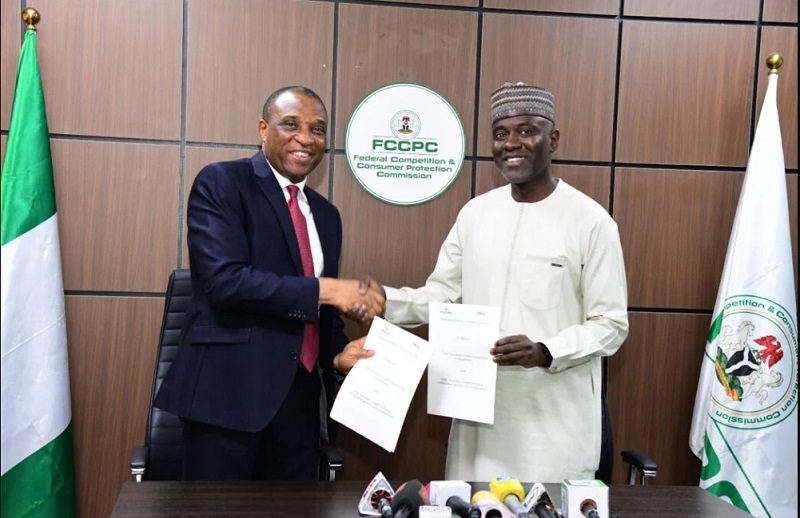By Paul Chimodo
Nigeria’s Federal Competition and Consumer Protection Commission (FCCPC) has joined forces with its regulatory counterpart, the Nigerian Communications Commission (NCC), in a bid to protect Nigerian telecommunication consumers from the exploitative tendencies of telecom operators like MTN, Airtel, Glo and others.
To that effect, both commissions signed a memorandum of understanding (MoU) on Tuesday to provide two layers of protection for consumers. Speaking at the signing ceremony, the Executive Vice-Chairman and Chief Executive of the Nigerian consumer protection watchdog, Tunji Bello, said the synergy between both bodies is critical to ensuring comprehensive oversight and consumer protection without regulatory conflicts or duplications.
He assured that through this partnership, the FCCPC and NCC would be making life easier for the generality of consumers in dealing with two government agencies on the same issue at the same time.
“The signing of the MoU symbolises the convergence of two diligent government agencies in compliance with legal requirements to eliminate regulatory gaps in the telecoms industry. Guided by our shared vision, this partnership will benefit both operators and consumers. It will foster harmonious collaboration between our organisations, streamline operations for telecom operators through a one-stop-shop approach in many instances, and ensure robust consumer protection, fair competition, and the eradication of exploitative practices,” Mr Bello said.
FCCPC NCC collaboration amid mounting calls for tariff increase
This development is coming at a time when telecom operators like MTN, Airtel and others are clamouring for a 100 per cent hike in tariff for calls, data and other telecom services. MTN Nigeria CEO, Karl Toriola, explained that the sector has experienced tough economic times owing to inflation and naira devaluation, just like every other sector. As such, the call for a tariff hike is not about profitability but the sustainability of the sector.
Sustainability is at the heart of what is driving the economy. If you don’t have a sustainable industry, the economy and well-being of the people will be affected. Yes, everyone in Nigeria has gone through difficult times in the last two years due to economic challenges: inflation, and naira depreciation among others. For us, we are not talking about profitability, but sustainability. Profitability will come on a long-term basis,” he said.


